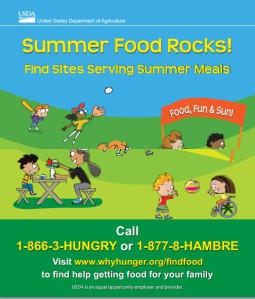
If you are in the mood to read a book (or two) that will make you think, give you some new perspective, and maybe even answer some of those existential questions that have been lurking in the corners of your mind…. then you may want to get yourself a copy of any one (or all) of these seven books, listed below.
Caveat:
If you are looking for a light summer read, these will not fit the bill.
They are not fiction. They are not self-help books.
They are, however, very interesting, thought-provoking works of non-fiction.

heatherfromthegrove’s Rating:

About the Book:
“In The Road to Character, David Brooks focuses on the deeper values that should inform our lives. Responding to what he calls the culture of the Big Me, which emphasizes external success, Brooks challenges us, and himself, to rebalance the scales between our “résumé virtues” — achieving wealth, fame, and status — and our “eulogy virtues,” those that exist at the core of our being: kindness, bravery, honesty, or faithfulness, focusing on what kind of relationships we have formed.”
About the Author:
David Brooks is a bestselling author and an op-ed columnist for The New York Times. He appears regularly on “PBS NewsHour,” NPR’s “All Things Considered” and NBC’s “Meet the Press.” He teaches at Yale University and is a member of the American Academy of Arts and Sciences.

heatherfromthegrove’s Rating:

About the Book:
“Jonathan Kozol tells the story of his father’s life and work as a nationally noted specialist in disorders of the brain and his astonishing ability, at the onset of Alzheimer’s disease, to explain the causes of his sickness and then to narrate, step-by-step, his slow descent into dementia.”
About the Author:
Jonathan Kozol is an American writer, educator and activist – best known for his books on public education and his fifty years of work among our nation’s poorest and most vulnerable children.
Them
Adventures with Extremists
by Jon Ronson

heatherfromthegrove’s Rating:

About the Book:
“As a journalist and a Jew, Ronson was often considered one of “Them” but he had no idea if their meetings actually took place. Was he just not invited? Them takes us across three continents and into the secret room… Ronson’s investigations, by turns creepy and comical, reveal some alarming things about the looking-glass world of “us” and “them.” Them is a deep and fascinating look at the lives and minds of extremists.”
About the Author:
Welsh journalist, documentary filmmaker and bestselling author of The Psychopath Test: A Journey Through the Madness Industry and So You’ve Been Publicly Shamed.

heatherfromthegrove’s Rating:

About the Book:
“This runaway bestseller, which has captured the imagination of critics and the public alike, traces our latest efforts to grasp the origins of the universe. Holt adopts the role of cosmological detective, traveling the globe to interview a host of celebrated scientists, philosophers, and writers, “testing the contentions of one against the theories of the other” (Jeremy Bernstein, Wall Street Journal).”
About the Author:
Jim Holt is an American philosopher, author and essayist. He has contributed to The New York Times, The New York Times Magazine, The New York Review of Books, The New Yorker, The American Scholar, and Slate.

heatherfromthegrove’s Rating:

About the Book:
“Dennis Cardiff has been involved with street people since 2010, when he began to reach out, on his own, to some of the people without homes who he encountered in his daily life. In his new book, he documents conversations he’s had with them over the past 4 years and, in the process, gives those who are often robbed of their humanity a human face. Written in diary form by month, and including some of Cardiff’s own poetry, the author chronicles the lives of people who are often ignored, feared or reviled.”
About the Author:
Dennis Cardiff is a Canadian writer, author, poet and artist.

heatherfromthegrove’s Rating:

About the Book:
“Millions of Americans work full time, year round, for poverty-level wages. In 1998, Barbara Ehrenreich decided to join them. She was inspired in part by the rhetoric surrounding welfare reform, which promised that a job — any job — can be the ticket to a better life. But how does anyone survive, let alone prosper, on $6 an hour? To find out, Ehrenreich left her home, took the cheapest lodgings she could find, and accepted whatever jobs she was offered. Moving from Florida to Maine to Minnesota, she worked as a waitress, a hotel maid, a cleaning woman, a nursing-home aide, and a Wal-Mart sales clerk. She lived in trailer parks and crumbling residential motels. Very quickly, she discovered that no job is truly “unskilled,” that even the lowliest occupations require exhausting mental and muscular effort. She also learned that one job is not enough; you need at least two if you want to live indoors.”
About the Author:
Barbara Ehrenreich is an American author and political activist.

heatherfromthegrove’s Rating:

About the Book:
” Fareed Zakaria argues for a renewed commitment to the world’s most valuable educational tradition. Zakaria eloquently expounds on the virtues of a liberal arts education – how to write clearly, how to express yourself convincingly, and how to think analytically. He turns our leaders’ vocational argument on its head. American routine manufacturing jobs continue to get automated or outsourced, and specific vocational knowledge is often outdated within a few years. Engineering is a great profession, but key value-added skills you will also need are creativity, lateral thinking, design, communication, storytelling, and, more than anything, the ability to continually learn and enjoy learning –precisely the gifts of a liberal education.”
About the Author:
Fareed Zakaria is the Emmy-nominated host of CNN’s Fareed Zakaria GPS, contributing editor for The Atlantic, a columnist for the Washington Post, and best-selling author of The Post-American World and The Future of Freedom.

















